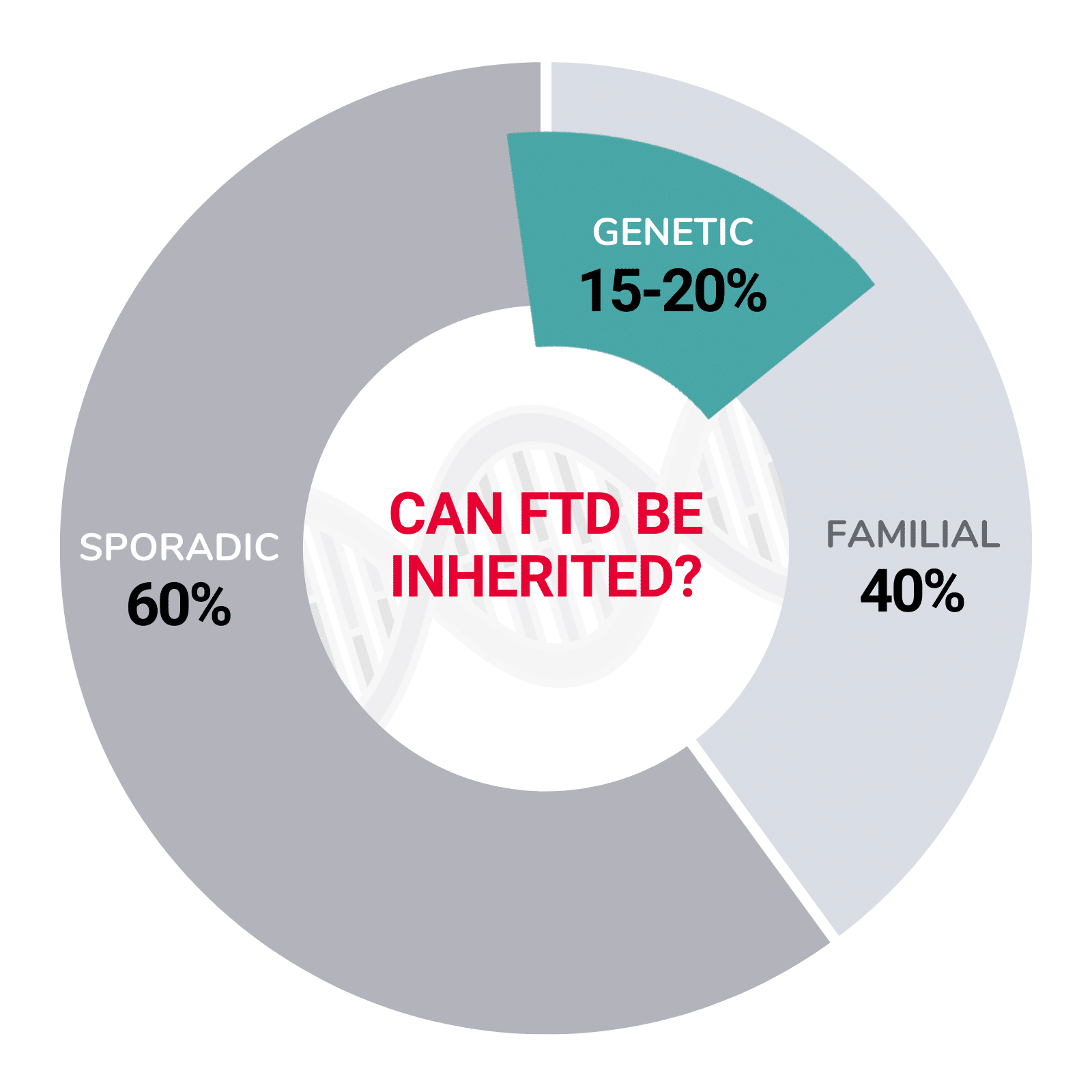FTD and Genetics Overview
Frontotemporal degeneration (FTD) is a group of disorders that can cause progressive changes to behavior, personality, language, and/or movement.
When a person is diagnosed with FTD, relatives may worry about their own risk for developing FTD. A genetic counselor can help assess the risk by evaluating your personal and family health history. Genetic counselors are trained to guide you through this process and support you as you consider genetic testing.

Sporadic FTD
In approximately 60% of people diagnosed with FTD, there is no one else in the family with FTD or related conditions. We refer to this as “apparently sporadic FTD.” In these individuals, the cause of their FTD is not yet understood. AFTD recommends any person diagnosed with FTD have genetic counseling with the option to test, regardless of family history. A smaller but still significant number of people with genetic FTD have no obvious family history.
Familial FTD
Approximately 40% of people diagnosed with FTD have a family history of one or more blood relatives diagnosed with FTD or a related condition (such as ALS), a mental health condition like depression or anxiety, progressive challenges with language or movement, or another dementia. This is referred to as familial FTD.
Watch the AFTD 2022 Education Conference session on Navigating the Uncertainty of Familial FTD.
Genetic FTD
When FTD is familial, there is a greater likelihood of identifying a pathogenic genetic variant (or mutation). Roughly 20% of people diagnosed with FTD have an underlying genetic cause. Pathogenic variants in more than a dozen genes can cause FTD; however, the most common genes are C9orf72, GRN, and MAPT. (The C9orf72 gene is also associated with ALS.) Researchers continue to discover new genes that can cause FTD.

